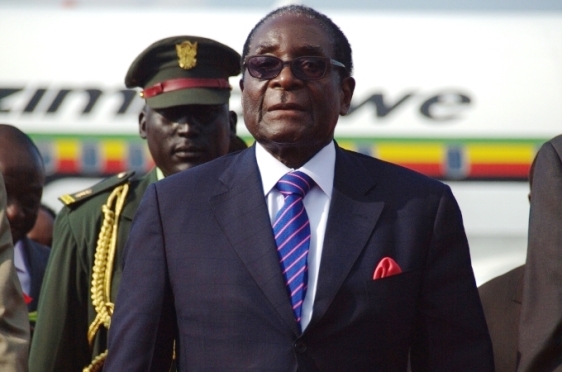2017 – Robert Mugabe formally resigns as President of Zimbabwe, after thirty-seven years in office.
Robert Mugabe became Prime Minister of Zimbabwe in 1980, when his Zimbabwe African National Union party –Patriotic Front , the ZANU–PF party won the elections following the end of white minority rule; he was the President of Zimbabwe from 1987 until his resignation in 2017. Under Mugabe’s authoritarian regime, the state security apparatus dominated the country and was responsible for widespread human rights violations. Mugabe maintained the revolutionary socialist rhetoric of the Cold War era, blaming Zimbabwe’s economic woes on conspiring Western capitalist countries. Contemporary African political leaders were reluctant to criticize Mugabe, who was burnished by his anti-imperialist credentials, though Archbishop Desmond Tutu called him “a cartoon figure of an archetypal African dictator”. The country has been in economic decline since the 1990s, experiencing several crashes and hyperinflation along the way. On November 15,2017, in the wake of over a year of protests against his government as well as Zimbabwe’s rapidly declining economy, Mugabe was placed under house arrest by the country’s national army in a coup d’état. On November 19, 2017, ZANU–PF sacked Mugabe as party leader and appointed former Vice-President Emmerson Mnangagwa in his place. On November 21, 2017, Mugabe tendered his resignation prior to impeachment proceedings being completed. On July 30, 2018 Zimbabwe held its general elections, which was won by the ZANU–PF party led by Emmerson Mnangagwa.
-Wikipedia


